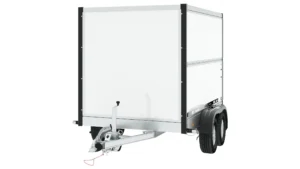Navigating the Environmental Challenges of Rough Terrain Forklifts
2025-07-09 03:40:28
Rough terrain forklifts are engineered to operate in demanding environments, including construction sites, mining operations, and agricultural fields. Unlike standard forklifts, these machines must withstand uneven surfaces, mud, and debris while maintaining stability and efficiency. Environmental requirements for rough terrain forklifts include robust weatherproofing, corrosion-resistant materials, and advanced cooling systems to prevent overheating in high-temperature conditions.
One of the primary environmental challenges for rough terrain forklifts is extreme weather adaptability. Manufacturers must ensure these machines perform reliably in sub-zero temperatures, heavy rain, or scorching heat. Hydraulic systems, for instance, require specialized fluids to prevent freezing or viscosity loss. Additionally, sealed electrical components protect against moisture and dust ingress, ensuring uninterrupted operation in adverse conditions.
Emission regulations also play a critical role in the design of rough terrain forklifts. With increasing global emphasis on sustainability, Tier 4 Final and Stage V emission standards mandate cleaner engines. Diesel-powered models now incorporate advanced exhaust after-treatment systems, such as diesel particulate filters (DPFs) and selective catalytic reduction (SCR), to minimize nitrogen oxide (NOx) and particulate matter (PM) emissions.
Another key consideration is the impact of rough terrain forklifts on sensitive ecosystems. Industries operating near wetlands or protected areas must ensure minimal soil disruption and noise pollution. Low-ground-pressure tires and noise-dampening technologies help mitigate environmental damage while maintaining operational efficiency.
Finally, maintenance protocols must align with environmental requirements to prolong equipment lifespan and reduce waste. Regular inspections of seals, filters, and hydraulic lines prevent leaks and contamination. By adhering to these standards, businesses can optimize rough terrain forklift performance while minimizing their ecological footprint.








